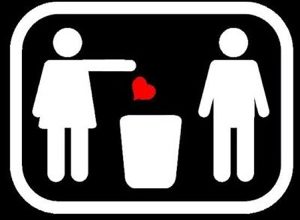Internet Pornography Destroying Us From Within
“The expense of spirit in a waste of shame is lust in action” – Shakespeare
by: Dr. Nafisa Sekandari & Hosai Mojaddidi
- There are approximately 4.2 million pornographic websites (roughly 12 %) on the internet today.[1]
- Every second 28,258 Internet users are viewing pornography.[2]
- 47% percent of families have said that pornography is a problem in their home.[3]
- In 2003, inappropriate conduct on the Internet, mainly pornography, was a significant factor in 2 out of 3 divorces.[4]
Finding accurate and current statistics on pornography is very difficult. The patterns and numbers change so rapidly every day that they quickly become outdated. This is mainly because with the advent of the Internet, pornography has become much more ubiquitous than back in the days when men and women clandestinely perused the curtained-off sections in the back corner of video rental stores. In our post-Internet, highly digitalized world there’s been a major paradigm shift with regards to our views on sex, sexuality, and sexual expression. As a result, the over-exposure and increased accessibility to pornography has led many Americans, including Muslims to form serious mental health problems, some of which include: sexual addiction or hypersexual disorder, depression, anxiety, shame, and in some cases misogyny and pedophilia. Internet porn is literally plaguing individuals and families here at home and everywhere across the globe. Mary Anne Layden, co-director of the Sexual Trauma and Psychopathology Program at the University of Pennsylvania’s Center for Cognitive Therapy, called porn the “most concerning thing to psychological health that I know of existing today.”
The industry of pornography is completely indiscriminate and aims to provide something for everyone; the needs of people from all backgrounds, ages, races, cultures, socio-economic backgrounds, and sexual persuasions are tailored to. Therefore, just about anyone who takes the plunge into the dark abyss of pornography is susceptible to becoming addicted. Many factors lead to this destructive behavior; some of them include a history of sexual abuse, issues with sexual identity, loneliness, sexual dissatisfaction in a relationship, sexual repression, shame, etc. Additionally, because of its relative anonymity and ease of access, people can spend hours online in the privacy of their home, and engage in fantasies which are impossible in real life. And since most real people cannot compete with fantasy, addiction to Internet pornography can wear away and even replace genuine intimate relationships.
In the Muslim community there has definitely been a rise in the number of divorce cases where Internet pornography was a major contributing factor. In many cases, however, marriages carry on the façade of normalcy because the problem is never dealt with properly. For the partner who is acting out and watching pornography, addiction, shame, denial, and fear of being caught as well as the subsequent consequences (divorce, loss of family/children, bad reputation, etc) are the major deterrents to getting help. For the remaining partner, if they are aware of the problem, it can often be too painful to admit or confront their partner with so they remain silent. If they’re simply unaware of the problem and are completely oblivious to their spouse’s behavior, then obviously the destructive cycle carries on.
Sexual Addiction, Internet Pornography and You
Sexual addiction is a disorder where a person uses cruising, flirting, fantasy, intrigue and sex itself as a way of managing and tolerating difficult feelings, stressors and underlying emotional conflicts.
If you are currently engaging in Internet pornography and feel out of control you most likely have a sexual addiction. According to Robert Weiss of the Sexual Recovery Institute, “One way of determining whether or not you are a sex addict is by looking at the degree of integrity (or lack of) by which you live your life. Sex addicts lie to their spouses and other important loved ones, they keep secrets, tend to sneak around and use lies or omissions to obtain or get away with recreational sex. They also minimize their sexual activities to themselves while dismissing other’s concerns about them and their behavior. A good question to ask yourself if you wonder if you have a sexual problem is: How does my sex life affect my sense of integrity and does it match up with my own personal values and belief systems? How does my sexual behavior make me feel about myself?”[5]
As previously mentioned, there are many reasons why people fall into this behavior. It is treatable both from a mental health perspective and a spiritual one (click here to read Shaykh Hamza Yusuf’s paper on pornography called “Climbing Mount Purgatorio: Reflections from the Seventh Cornice”). From the mental health perspective, you must first identify the degree of your problem. Follow the guidelines below:
You have an addiction…
- If your sexual behaviors (watching pornography, compulsive masturbation, etc) create legal, relationship, career, emotional or physical consequences, yet you continue to engage in those sexual behaviors anyway
- If your sexual behaviors take up more time, energy and focus than you would like or if they cause you to persistently act out in ways that go against your underlying values and beliefs
- If you often find yourself thinking, “This is the last time that I am going to…” yet you ultimately feel compelled to return to the same or similar sexual situations, despite previous commitments to change.[6]
Sexual Addiction, Internet Pornography and Your Partner (or Family Member)
If you suspect that your spouse (or someone in your household) has a sexual addiction or a serious problem with pornography it’s important to know what to look out for. The following cues may be helpful:
Your partner (or family member) may…
- Spend an excessive amount of time on the Internet, especially late at night when everyone else has retired to sleep
- Withdraw from you emotionally and or physically/sexually (if it’s a spouse)
- Act especially guarded about his/her computer when you are around and does not let anyone else ever use it
- Neglect friends, family and/or responsibilities in order to be online
- Open up a private credit card (often used to purchase online porn and support the addiction) and deny you access to the account
- Try to isolate him/herself and prefers to be alone
These are just some of the behaviors that a person hiding an addiction to Internet pornography may exhibit. They are in no way definitive behaviors that necessitate the involvement of pornography, so avoid suspicion unless you have concrete evidence. Moreover, it’s important to evaluate changes in behavior holistically and over a period of time, to avoid coming to any irrational conclusions or unsubstantiated suspicions. In the Qur’an, God admonishes unfounded suspicions in the verse, “O you who believe! Avoid much suspicions, indeed some suspicions are sins. And spy not, neither backbite one another. Would one of you like to eat the flesh of his dead brother? You would hate it (so hate backbiting) . And fear Allah. Verily, Allah is the One Who accepts repentance, Most Merciful. (49:12)
Treatment
As with all addictions, the implications of letting the behavior go untreated are serious and will result in further health problems. Long-term exposure to pornography can have a devastating effect on a person’s mental health, physical health, and personal relationships. The biggest mistake that impedes recovery is denial on the part of the addict and/or the spouse (or family member) or the belief that the addict can recover on his/her own. The addiction will only worsen with time and can often be a precursor to more serious behaviors such as promiscuity and/or infidelity, and in extreme cases sexual crimes such as rape and pedophilia.
Furthermore, according to The National Council on Sexual Addiction and Compulsivity, “Compulsive sexual thoughts and/or behavior can lead to increasingly serious consequences, in both the addict’s internal and external worlds. The consequences may include severe depression, often with suicidal ideation, low self-esteem, shame, self-hatred, hopelessness, despair, helplessness, intense anxiety, loneliness, moral conflict, contradictions between ethical values and behaviors, fear of abandonment, spiritual bankruptcy, distorted thinking, remorse, and self-deceit. For example, 70-75 percent of addicts have thought about suicide.”
Whether you suspect your partner (or a family member) of having an addiction or if you yourself are struggling with an addiction, it’s imperative to seek help immediately. A therapist specializing in addiction and anxiety disorders or a sex therapist is the place to start. And do not let irrational fears about being exposed or judged deter you from seeking help. Unlike a friend or family member who may not be able to sympathize, understand, or keep your issue in confidence, therapists are licensed professionals under oath to maintain your privacy as well as to help you; they deal with these issues on a regular basis and are trained to offer you the best help for your specific needs, not to judge or condemn you. For more information please check out the following links:
[1] www.familysafemedia.com
[2] ibid
[3] Focus on the Family Poll, October 1, 2003
[4] www.divorcewizards.com
[5] http://www.sexualrecovery.com/resources/articles/faq.php

